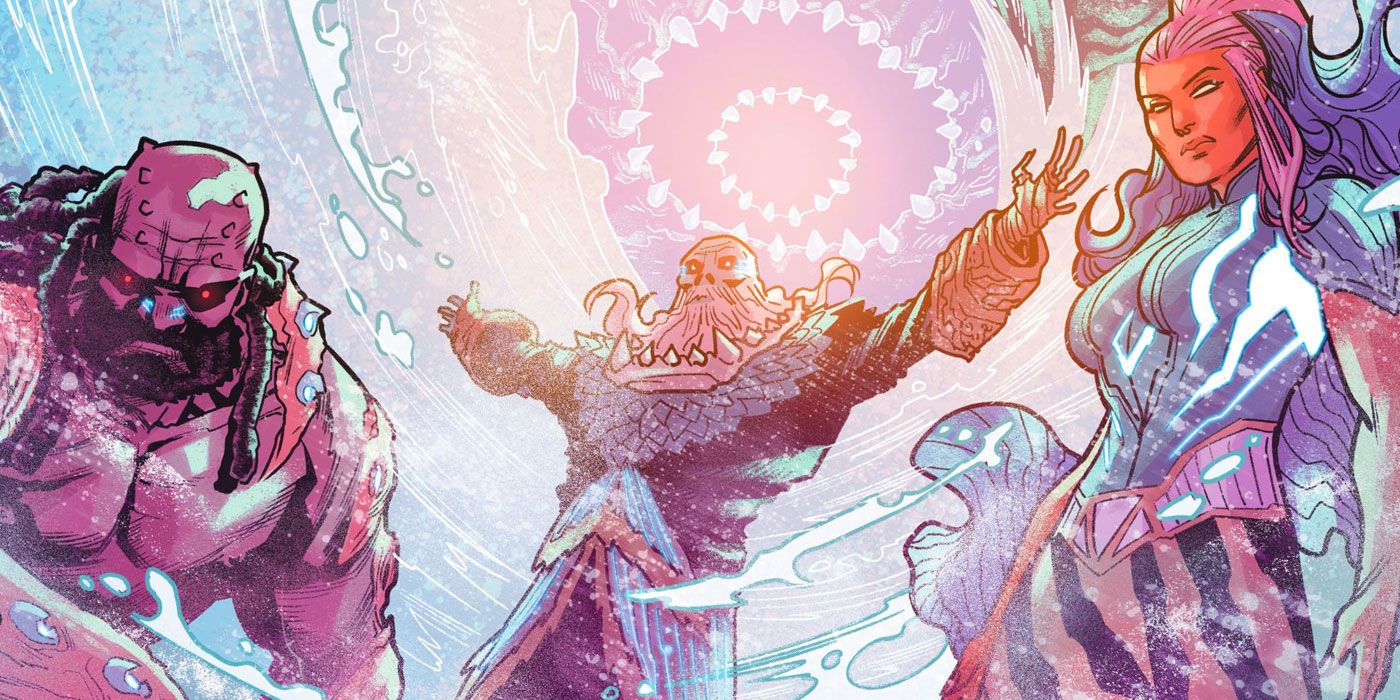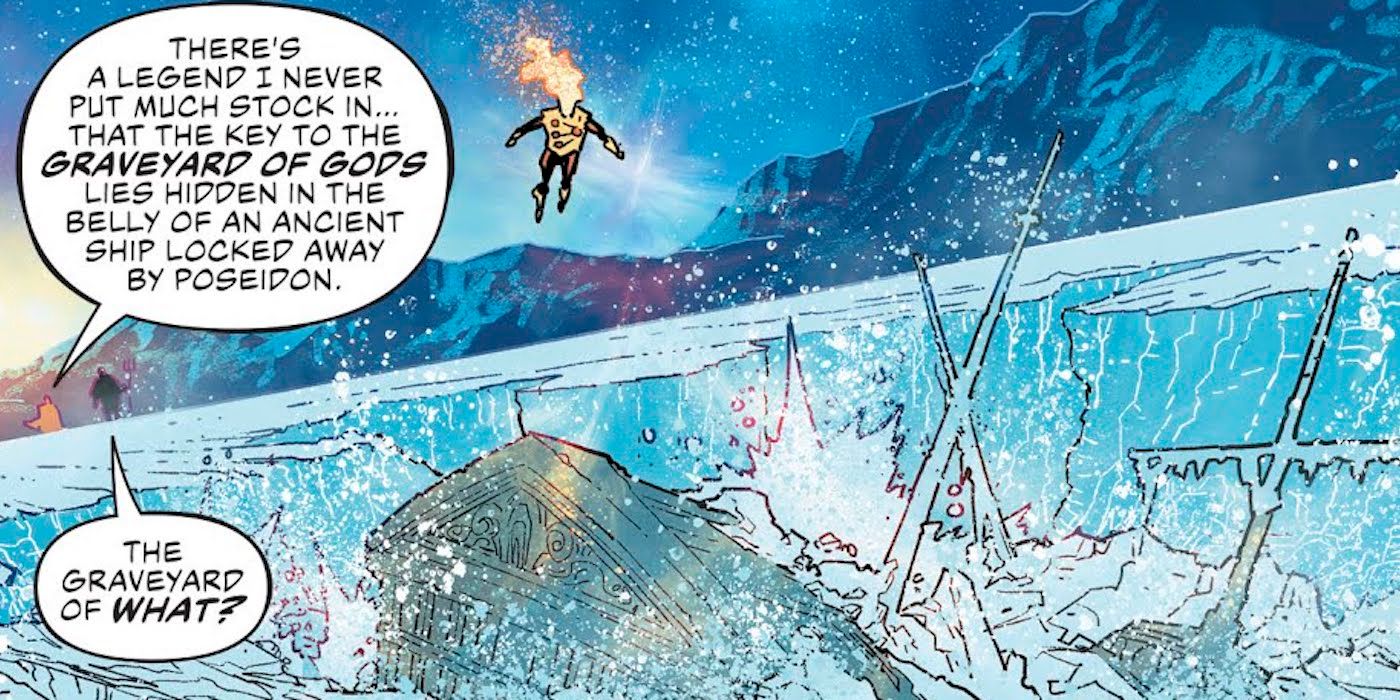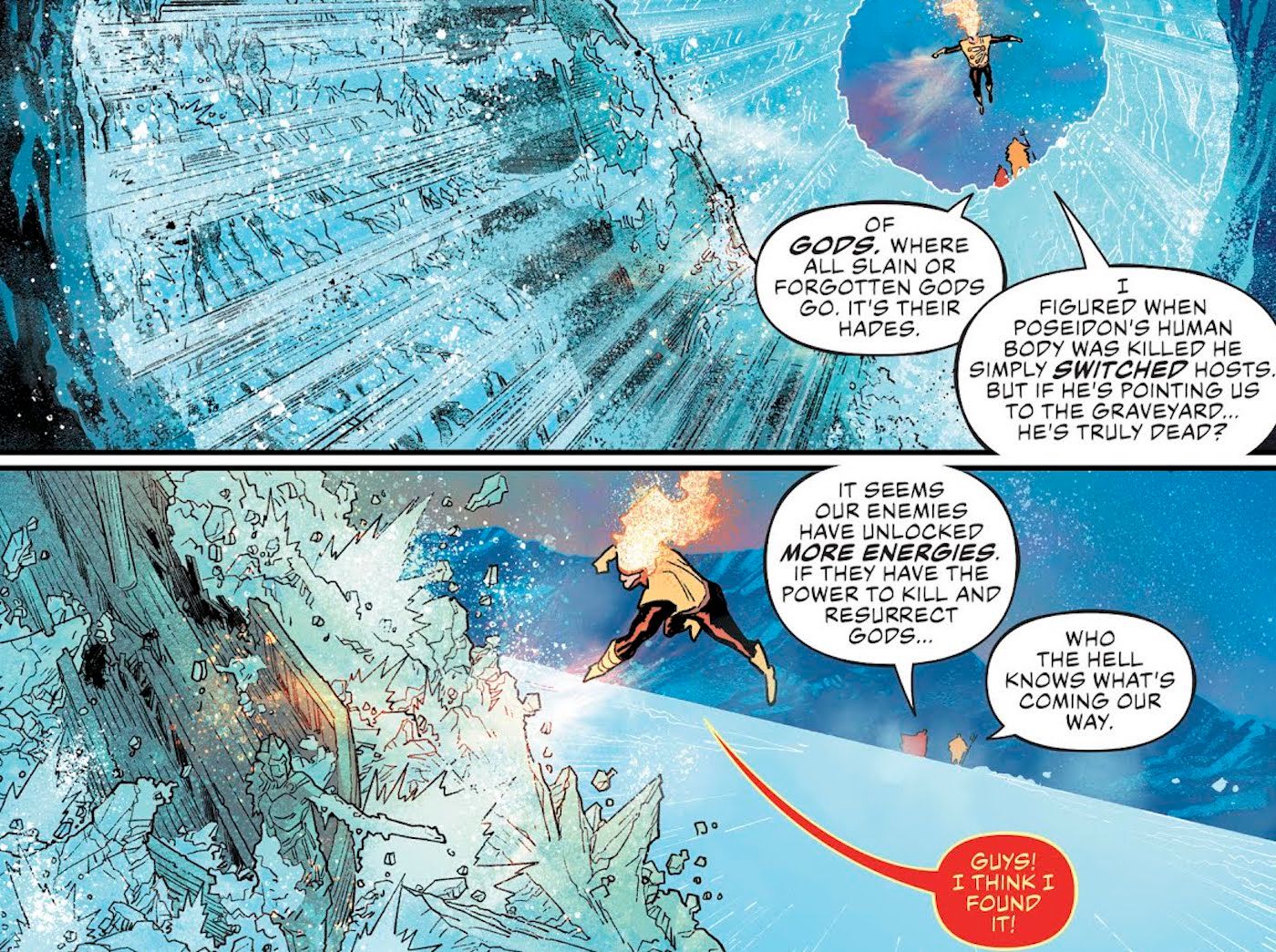WARNING: The following article contains spoilers for Justice League #10 by Scott Snyder, Francis Manapul and Tom Napolitano, in stores now.
In the DC Universe, the pantheon of Greek gods has mostly been tied to the Wonder Woman's mythology, however, if you're a fan of the stories involving the Old Gods and the New Gods, you'd understand just how integral they are to the entire DCU's earliest days. While the concept of a god is somewhat fluid, ranging from an alien origin to a supernatural or mythical one, we can all agree on this bunch being all-powerful entities ever since they came into being after the Godwave spilled over to create what we've come to know as the Fourth World.
It's this omnipotence which helps to craft their mystique, and more so, their immortality. However, in Justice League #10 we learn that this isn't the case at all, and that these gods do indeed suffer a permanent death.
RELATED: Justice League Has Transformed A B-List DC Villain Into a Genuine Godslayer
Following the death of Poseidon, Aquaman and Wonder Woman are tracking clues he left behind to find the Graveyard of Gods, a mysterious place whose ominous name promises a lot of danger. They realize Cheetah, who can now slay gods, and Black Manta are seeking to attain some sort of equalizer to the Justice League, although what -- or who -- exactly this weapon is remains unclear. All they know is, the graveyard is the key.
Diana of Themyscira elaborates on this place, though, revealing it's actually where Greek gods go when they die for real. It seems Cheetah and Manta may be going there to either use the spirits of deceased gods, or maybe even their actual bodies, for some nefarious plot, but what's for certain is that Wonder Woman knows it spells disaster, not just for Olympus' still-living deities, but mankind as a whole.
This revelation shocks Aquaman, who, like most readers, assumed the Greek gods could be taken off the table, but never truly die. Diana clears the air, however, explaining it is indeed an underworld, further hinting there might be a Hades there in the form of a crypt-keeper. As guardian of the underworld for human souls, Hades has been a constant thorn in humanity's side, which indicates a version tasked with watching over dead gods might be more dangerous.
RELATED: Justice League Gives An ’80s DC Superhero’s Origin Story a Rebirth Retcon
In DC lore, as Wonder Woman points out, the gods of Olympus usually die, their spirit heading into another vessel where they remain dormant. When the time comes, they reemerge as the gods they were meant to be. We saw this in the New 52 when Zeus was reborn as baby Zeke to a human called Zola, and with gods like Poseidon, for example, who moved from human hosts to a squid-like form. The point is, their essence was thought to live on, seeking out some other corporeal form. But now, we know that if a killer has the right tools, such as Cheetah, who stole the Tear of Existence from Lex Luthor, they can murder one of these gods for good.
As we await more details, and to see which gods are inside this graveyard, we have to wonder how can such a place hold them. The last thing that contained these gods when they perished was the belly of the Titan known as Cronus. He ate Zeus' siblings because he feared one of them would kill him as prophesied, and in his stomach, the likes of Hades, Hera and Poseidon, were devoured. They remained inside him, for all intents and purposes, dead. That is, until Zeus harnessed the power of lightning, killed his dad and freed them.
RELATED: Justice League: Batman Just Tried to Weaponize [REDACTED]
Could Cronus be the gatekeeper? Or did he actually have a hand in making this graveyard so all his offspring could be taken there someday? Only time will tell, but as it stands, if Cheetah continues on her rampage and the secrets to this graveyard aren't unlocked, Diana may find herself on an endangered species list with her fellow Olympians.



